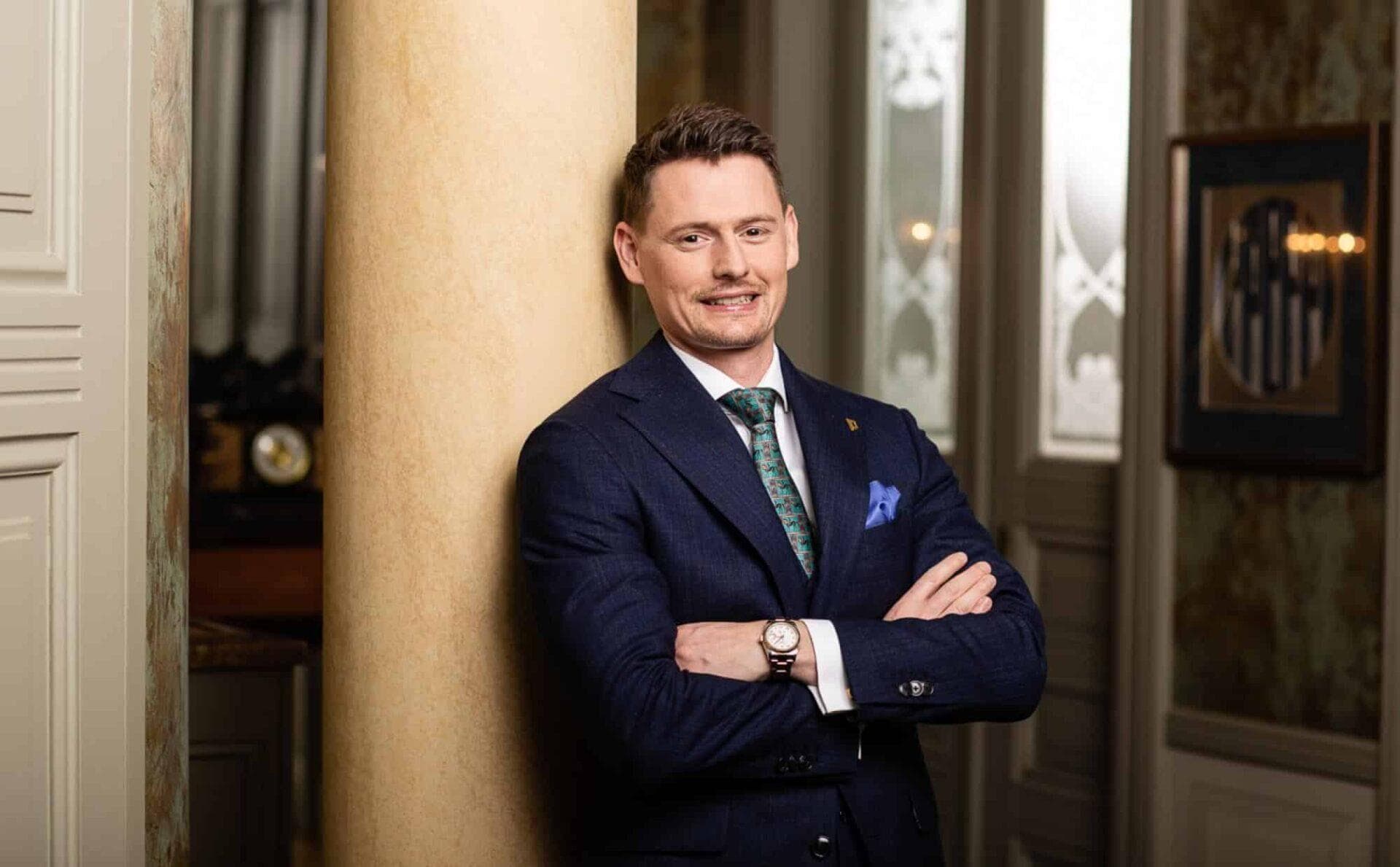Jakub Hollmann: A trust fund is not just for Babiš
09 \ 05 \ 2022

The number of Czechs who want to organize their assets using trust funds increased by almost half last year. And the interest is not fading. Trust funds can be a suitable solution for transferring, for example, a family business to the next generation – which is why there is growing interest in such asset arrangements within companies.
“Inheritance law as it is structured actually has destructive consequences for heirs and the relationships between them. A trust fund is something that allows you to avoid this, set clear rules, and introduce the beneficiaries to them already during your lifetime,” summarizes the advantages of trust funds Jakub Hollmann, partner at the law firm Císař, Češka, Smutný.
Through its sister company, it establishes trust funds for businessmen from many industries, including traditional Czech family businesses. In 2021, the law firm managed assets placed into trust funds for its clients totaling nine billion crowns.
Some people mainly associate trust funds with Andrej Babiš. What benefits do they offer for an ordinary entrepreneur who is not the fifth richest Czech dealing with a conflict of interest?
“I firmly believe that thanks to the development and awareness in the area of trust funds, we have long overcome the issue of Andrej Babiš and his conflict of interest. Today, the greatest interest in trust funds comes not only from entrepreneurs but also from ordinary citizens, for whom trust funds are also intended, especially due to the effort to organize their assets during their lifetime and to set rules for their further direction and management in the future.”
Trust funds thus effectively allow avoiding often lengthy inheritance proceedings because if you have assets in a trust fund, they will not be part of the estate, and you do not have to go through probate. Fund founders simply try to arrange assets in such a way as to ensure their professional management during their lifetime and at the same time set the rules for the beneficiaries after the founder’s death.
The fact that you set your own rules of the game and clearly define the rules for the assets you accumulate during your lifetime undoubtedly has clear advantages. But this is not the only reason why trust funds are established.
What are the other reasons?
“The second significant reason clients come to us is asset protection. This advantage is especially important in the business environment. By separating or depositing assets into a trust fund, you protect your assets against vexatious insolvency petitions or execution proposals aimed at you as the founder and your assets.”
If you do risky business, it is better not to transfer assets, for example, to family members but instead to establish a trust fund in time, which, alongside professional management and other advantages, also ensures protection against potential negative external influences.
The number of Czechs interested in arranging assets through trust funds last year increased by almost half compared to 2020. Why?
Growth is also visible this year. By early March this year, just under 3,800 trust funds were registered in the trust fund records. It is also expected that the number will continue to grow given that many trust funds are currently being established.
There are several reasons why the number of trust funds continues to grow. Generally, we could label the causes of growing interest as crises. There was the global COVID pandemic and its associated negative impacts. Many people stayed locked at home and naturally began to think in uncertain times about how their business and property relations were arranged.
These reflections reached the generation that, five years ago, did not think about trust funds at all — the generation of people in their forties. Today, they make up half of our clients, specifically people aged between forty and fifty. The uncertainty, when no one knew what would happen next, prompted people to consider these matters they tended to postpone to later years in life.
And then came the Russian attack on Ukraine…
That certainly did not contribute to certainty regarding asset management. Since March this year, we have also seen significant interest in parallel foreign structures. Especially Liechtenstein is now very popular. For comparison, in 2021, nine out of ten clients wanted a Czech trust fund, and one wanted a Liechtenstein foundation or trust. Today, the ratio is about fifty-fifty.
People want to create a parallel structure alongside the Czech one or want to have assets only under the protection of Liechtenstein jurisdiction. Conversely, once-popular trust and tax havens, such as Cyprus or Malta, known from the transition period of the 1990s and 2000s, have been essentially buried by European legislation and partly the impacts of the pandemic.
Compared to the Czech trust fund, in those jurisdictions, only the trustee is publicly registered—and that’s all. The ultimate owner is untraceable. In the Czech trust fund, the ultimate owner is traceable because with Lex Babiš and other tax amendments, we have become one of the most transparent countries in this respect.
Can it also be understood that there is interest in Liechtenstein because people are trying, due to the conflict in Ukraine, to get their assets into a more stable environment?
“We can call it that. Another reason for the interest is that Liechtenstein is not part of the European Union. Therefore, decisions from EU member states are not recognized there. If you have assets protected by Liechtenstein jurisdiction and you are convicted of some offense in any EU country, the judgment is not enforceable in Liechtenstein. They consider the judgment, take it as information, but the process is reviewed independently.”
Let’s return to Czech trust funds. You said their number will continue to rise because many founding processes are underway. What do you expect next? Will interest continue to grow?
“It will. My estimate is that by 2023, we will be somewhere around five to six thousand trust funds because many are currently being established and more and more interested parties are approaching us. Moreover, the Czech legal framework has undergone significant changes since the inclusion of the trust fund institute into the legal order in 2014. These contribute to the increasing attractiveness of the trust fund, which is beginning, following foreign examples, to become a standard means of asset management.”
Looking at the legal systems Czechia competes with, we mostly talk about the United Kingdom, France, and Liechtenstein. In all these places, trusts are a common part of the property structure of every moderately wealthy entrepreneur or family as such. In France, if you don’t have a trust and inherit some property, the state may impose an inheritance tax of up to sixty percent on the value of the property. If it is held in a trust and your descendants inherit it through the trust, the tax burden is eliminated.
Is inheritance law really so disadvantageous here?
If you make a will about any significantly sized assets—and we are not talking hundreds of millions but even low tens of millions—and have more than one heir, it always holds that you can never satisfy two or more heirs equally. Or disputes may arise. One will always feel disadvantaged compared to the other. Procedurally, it’s incredibly easy to stop and sabotage inheritance proceedings, and the one who has more patience wins.
Inheritance law as it is structured actually has destructive consequences for heirs and their relationships. A trust fund is something that allows you to avoid this, set clear rules, and introduce the beneficiaries to them already during your lifetime. The founder built the assets after all, so he has the right to decide how they will be managed further. This all basically stems from Roman legal tradition, where the strength of the family was counted from economic unity and strength.
From Thursday, the current issue of Forbes, which presents the 175 largest Czech family firms, is on newsstands. Is this the category of firms with the greatest interest in arranging assets into trust funds?
Definitely. We often have clients who have family businesses and heirs whom they wish to take over the companies. The heirs are perhaps around twenty-five years old, and company founders rely on the fact that when they reach perhaps forty years of age, they will have worked the necessary years to properly manage the company and can then hand it over to them. Therefore, companies are now placing assets into trust funds to bridge this period and subsequently transfer the family business to their successors.
Source: Forbes.cz
Author: Martin Bajtler




